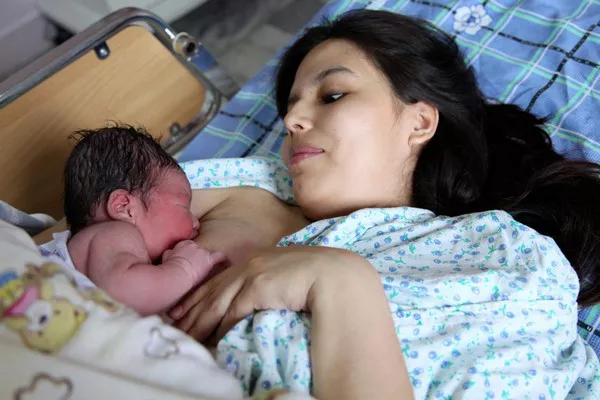As parents, we are naturally concerned about the well-being of our little ones, especially when it comes to their sleep quality. One common question that often arises is, “Is it okay if my baby’s hands are cold at night?” In this comprehensive guide, we’ll explore this topic in detail, providing insights, tips, and suggestions to ensure your baby’s comfort and safety during those chilly nights.
1. Understanding Why Baby’s Hands Get Cold
To address the concern of cold baby hands at night, it’s crucial to understand why this happens. Babies have a higher metabolic rate than adults, which means they generate heat more quickly. However, they also have a larger surface area in proportion to their body size, which can result in their extremities, such as their hands and feet, feeling cooler than the rest of their body. This natural phenomenon is generally not a cause for alarm.
Natural Heat Distribution
Babies have a unique way of distributing heat. Their bodies prioritize keeping their vital organs warm, which can lead to cooler hands and feet. This doesn’t necessarily indicate that your baby is cold overall.
Normal Variation
Just like adults, babies can experience fluctuations in their body temperature during sleep. It’s perfectly normal for their hands to feel cooler at times, even when they are comfortably warm otherwise.
2. Ensuring Your Baby’s Comfort
Now that you understand the natural reasons behind cold hands in babies, let’s explore ways to ensure your baby’s comfort during nighttime slumber:
Appropriate Room Temperature
Maintaining a comfortable room temperature is key to ensuring your baby sleeps well. The ideal room temperature for a baby’s sleep is between 68°F to 72°F (20°C to 22°C). Use a room thermometer to monitor and adjust the temperature accordingly.
Dress Your Baby Adequately
Dress your baby in layers to help regulate their body temperature. Use breathable fabrics and consider using a sleep sack or swaddle to keep them snug without the need for loose blankets, which can pose safety risks.
Check for Illness
If your baby’s hands are consistently cold, it’s essential to rule out any underlying health issues. Cold hands could be a sign of illness or poor circulation. Consult your pediatrician if you have concerns about your baby’s health.
3. Tips for Monitoring Your Baby’s Sleep Comfort
To ease your worries and ensure your baby’s sleep quality, here are some additional tips:
Touch Test
Instead of relying solely on your baby’s hand temperature, use the touch test. Gently feel the back of your baby’s neck or their chest. If these areas feel warm and comfortable, your baby is likely at an appropriate temperature.
Warm-Up Routine
If you notice that your baby’s hands are cold, you can warm them up gently by rubbing your hands together and then placing them on your baby’s hands. Be cautious not to use electric blankets or heating pads, as they can be unsafe for infants.
Keep the Room Well-Ventilated
Proper ventilation in the room is essential for your baby’s well-being. Fresh air circulation can help maintain a comfortable sleep environment. However, avoid direct drafts on your baby’s crib.
4. Common Misconceptions about Cold Baby Hands
It’s also important to dispel some common misconceptions surrounding cold baby hands:
Myth 1: Cold Hands Mean a Cold Baby
As we’ve discussed, cold hands do not necessarily indicate that your baby is cold overall. Babies’ bodies regulate their temperature differently, and cold hands can be a normal part of their sleep.
Myth 2: Always Add Extra Blankets
Adding extra blankets to your baby’s crib can actually be unsafe. It increases the risk of suffocation and overheating. Instead, focus on adjusting the room temperature and dressing your baby appropriately.
5. The Importance of Safe Sleep Practices
Lastly, it’s crucial to emphasize the significance of safe sleep practices for your baby. These practices contribute to your baby’s overall safety and comfort during sleep:
Back to Sleep
Always place your baby on their back to sleep, as this reduces the risk of Sudden Infant Death Syndrome (SIDS).
Clear the Crib
Ensure that the crib is free of loose bedding, pillows, and stuffed animals that could pose suffocation hazards.
Regular Check-Ins
While it’s essential to monitor your baby’s comfort, avoid frequent disruptions during their sleep. Instead, conduct regular check-ins to ensure they are safe and comfortable.
In conclusion, if your baby’s hands are cold at night, it is usually not a cause for concern. Understanding the natural reasons behind it, ensuring an appropriate room temperature, dressing your baby adequately, and practicing safe sleep guidelines can help you provide a comfortable and safe sleep environment for your precious little one. Remember, each baby is unique, so trust your parental instincts and consult with your pediatrician if you have specific concerns about your baby’s well-being.


